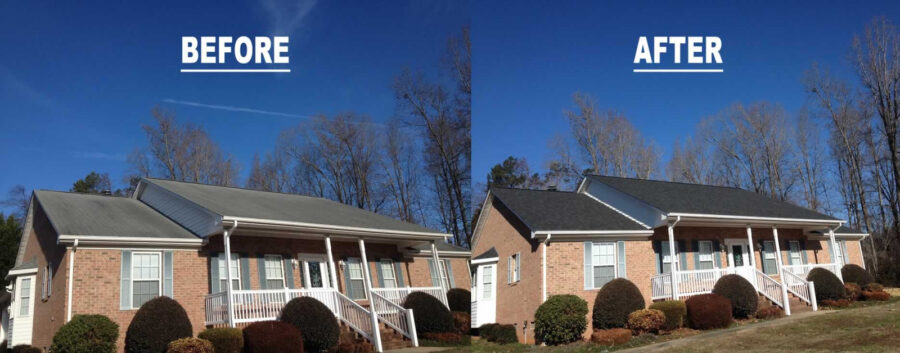If the shingles on your roof are disappearing as quickly as cake at a toddler’s birthday party, it’s probably time to replace your roof. Great Day Improvements has put together this list of 15 questions that every homeowner should ask a potential roofer before signing a contract, so you can ensure the company you hire is reputable and capable of getting the roof done right the first time around.
1. Question You Should Ask: Are you licensed?
Answer You Want to Hear: Yes, in most states
Why You Want to Hear It: Many states require a roofer be licensed in the state; however, all states are different. This means one code may be required in Boston while another may be required in Nashville. So what’s a homeowner to do? Research the code requirements in your area. If contractors, including roofers, are required to be licensed in your state, only work with those who are so you have some recourse in case things go wrong. Be sure the license is up to date.
2. Question You Should Ask: Do you have workman’s comp insurance?
Answer You Want to Hear: Yes
Why You Want to Hear It: At one time employers with three or fewer employees didn’t have to offer workman’s compensation insurance; now they do by law. Still, some contractors and roofers will skimp out on this requirement. The reason? Insurance isn’t cheap, and some would rather take their chances. The problem, of course, is when the chance is taken on your property and an employee becomes injured. If you hire a company that doesn’t offer employees workman’s compensation and someone gets injured on your property, you might find yourself forking over thousands of dollars to pay for medical bills. This is a loss no homeowner wants to incur. To protect yourself, make sure the company you hire insures each worker that will be present on your property.
3. Question You Should Ask: Do you carry general liability insurance?
Answer You Want to Hear: Yes
Why You Want to Hear It: Workman’s compensation covers the employees on your property; general liability insurance covers your actual property. For example, if a contractor accidentally burns your house down in the process of welding something on your roof (it has happened!) and the company doesn’t carry liability insurance, you could be responsible for covering the debts incurred by this tragic accident. When it comes to insurance, though, don’t simply take the roofer’s word for it. Ask to see an insurance certificate. This certificate will list your name and address as an additional insured, so if something happens on the job, you –and all of your hard-earned property – are covered. If you still feel hesitant, call the insurance company and ask.
4. Question You Should Ask: Will you remove my old roof?
Answer You Want to Hear: Yes
Why You Want to Hear it: Some roofers will claim to save time and money by inspecting, with their eyes, the old roof, and then, if all looks well, shingling over it. However, unless the old shingles are pulled up you will never know if you have soft spots or rotten wood beneath the current shingles. If bad spots remain behind, you will have larger, costlier problems in the future. Don’t let a roofer place a new roof on your house until they have taken up the old roof.
5. Question You Should Ask: Are you going to install drip edge or edge metal when you install the new roof?
Answer You Want to Hear: Yes
Why You Want to Hear It: Drip edge or edge metal is a small piece of aluminum placed under the shingle where it comes off of the roof. This piece of metal extends past the roof and allows runoff to flow into, rather than behind, the gutters, protecting the fascia and wood on your roof. If a drip edge or edge metal is not installed, you will incur problems associated with water damage. However, unless you specifically ask about drip edge prior to the job, some roofers will skip over this part of the process. For this reason, it is essential you ask about drip edge prior to hiring a roofing company.
6. Question You Should Ask: Will you use ladder stabilizers or standoffs to protect my gutters when you install my roof?
Roofers with ladders
Answer You Want to Hear: Yes
Why You Want to Hear It: You may not think about it as you contemplate your new roof, but the method the company uses to get onto the roof is almost as important as the type of roof you choose. Ladder stabilizers and/or standoffs should be used in every roofing job. Stabilizers are like big arms that rest on the roof or on the side of the roof. This keeps the weight of the extension ladder, which can weigh a few hundred pounds, off of your gutters. Without some type of standoff or stabilizer, you might end up with a great roof but a torn up, broken apart guttering system around your house at the end of the job. If the company you’re considering for the roofing job answers no to this question, you need to ask what they will do to ensure your gutter system will remain intact and unharmed during the project; if they can’t answer this question, don’t trust them to complete your roof.


0 Comments
Leave a comment